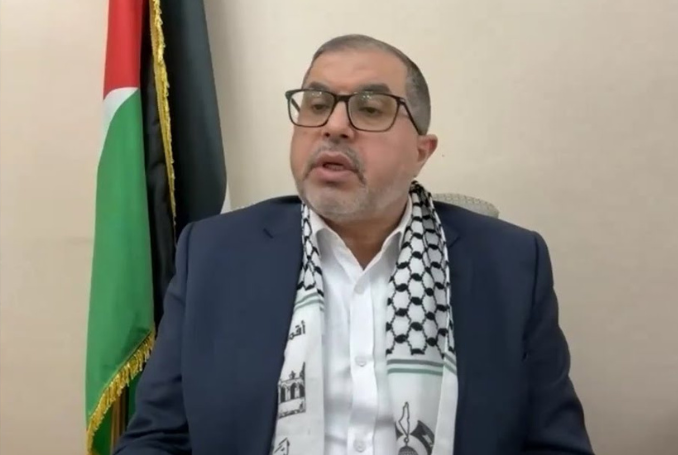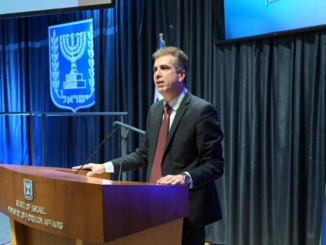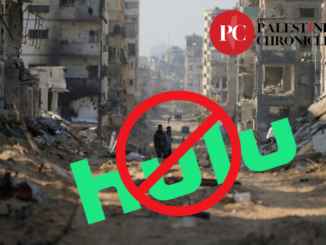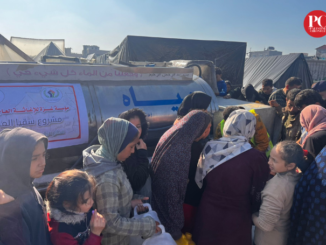
The tribes in Gaza exist and have all the respect and appreciation. However, the composition of the population in the Gaza Strip is complex.
Bassem Naim, a top member of Hamas’ political bureau in Gaza, said clans and large families no longer constitute an important component in the formation of Palestinian society.
The statement, made in an interview with Al-Jazeera Net was a response to Israeli efforts aimed at sidelining the Hamas government in Gaza in favor of an alternative body made of representatives of large clans.
According to Naim, however, the Israeli efforts are destined to fail because the power enjoyed by these tribes and clans is limited, and it would not be possible for them to manage the large Gaza community of about 2.3 million people.
Failed Attempts
The Palestinian Authority in Ramallah “tried to return to the rule of Gaza on the back of a tank and under malicious Israeli projects,” Naim said.
Additionally, Israeli media revealed a “plan .. that includes dividing the Gaza Strip into areas ruled by tribes and is responsible for distributing humanitarian aid.”
“From day one, (Israeli Prime Minister Benjamin) Netanyahu announced that he would not allow Hamas rule to return to the Gaza Strip,” Naim told the Al-Jazeera Arabic website.
To achieve its own, and by extension, Israel’s objectives, the Palestinian Authority is also trying to engineer its return to Gaza.
“The PA .. especially (its) security forces, are trying to use families (large clans and tribes – PC) to return to power in the Gaza Strip on the back of a tank under Israeli projects,” he said.
But the Ramallah-based authority of Mahmoud Abbas “will not succeed in this, as with all its strength and security and financial capabilities, it has not been able to return before, and therefore it will not be able to return now from the weakest door”, meaning through the tribes.
Gaza Has Changed
These are some of the other points raised by Naim in the interview:
– After the split in 2007, the PA tried to regain its authority in the Gaza Strip through chaos and through specific clans but failed miserably.
– The tribes in Gaza exist and have all the respect and appreciation. However, the composition of the population in the Gaza Strip is complex.
– The demographics in the Gaza Strip do not depend only on families, especially in recent years after mixing, intermarriage, and geographical movement from one place to another.
– The younger generation today is less attached to the (tribal) family structure compared to the social setting of Gaza 20 or 30 years ago.
– Most of the family members today are present in all organizations, including Fatah, Hamas, the Popular Front, Islamic Jihad and others.
HAMAS: Top Hamas official Bassem Naim said that the movement is willing to exchange all captured Israeli soldiers with all Palestinian prisoners.
FOLLOW OUR LIVE BLOG:https://t.co/6wdv30iTct pic.twitter.com/0zq0snNVMq
— The Palestine Chronicle (@PalestineChron) November 29, 2023
– All the information that has been received confirms that all the Palestinian tribes have rejected this ‘Zionist offer’ and know that these offers and plans are malicious and aim at dividing the Palestinians.
– Even if it happened that some responded positively at one moment – whether by pressure, threats, temptation or otherwise – these families quickly remedied that mistake and expressed their complete rejection of this method which is meant to be used by the occupation as a tool to stab the goals and ambitions of our people in the back.
It is noteworthy that a large meeting of Palestinian tribes, clans and families issued a statement in recent days in which it rejected the use of clans as an alternative to a governing political body.
In their meeting, representatives of the clans said that national unity is the only way to preserve struggle and steadfastness of the Palestinian people.
(The Palestine Chronicle)








